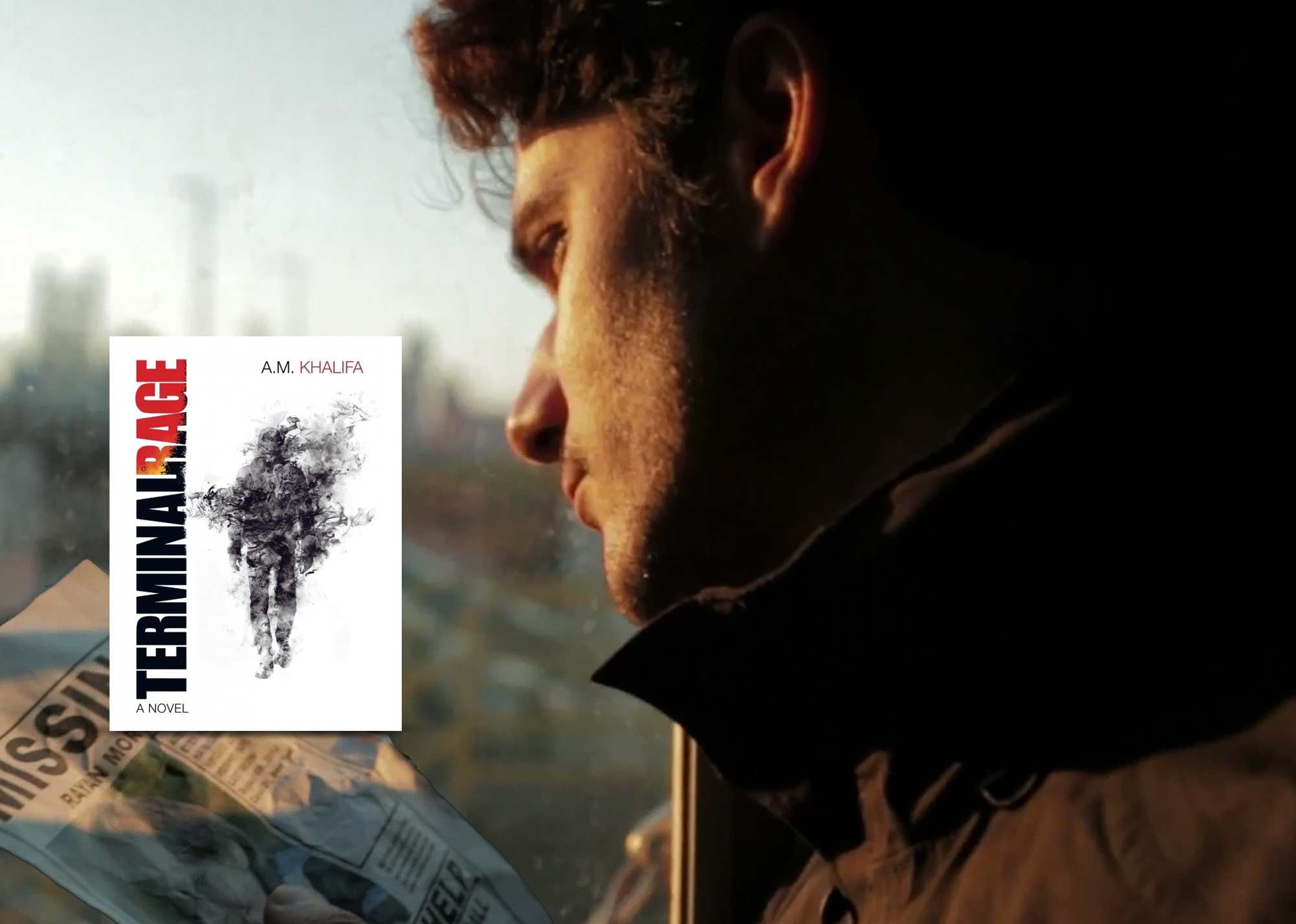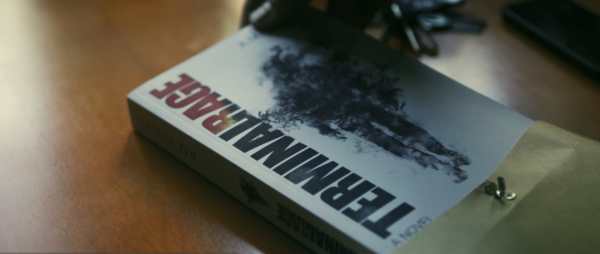Book Trailers: How to Avoid the Abyss of the Uninspired or Overproduced

I cannot think of anything in the book world that was begging for reinvention more than the book trailer. So I took a stab at it myself for my debut novel, Terminal Rage. You can see the result here and make up your own mind, but I happen to believe this could be a game changer.
In principle, the idea of a book trailer is sound. In an increasingly media-rich world, it makes perfect sense to have a short audiovisual marketing product that helps promote and sell your book. In practice, however, the book trailer has been lackluster. Even the most successful traditional authors, backed by major publishing houses, have never churned out a decent one. Given its propensity to innovate, however, the indie publishing realm was bound to throw the first pebble in the stagnant book trailer pond.
Two (Bad) Types of Trailers

The book makes only a brief cameo in the book trailer
Most book trailers I have seen in the past fell in two distinct categories: the uninspired and the overproduced. The uninspired are typically of the home-brewed variety, with low production values. You know what I am talking about: the ones that rely heavily on still photographs while abusing the Ken Burns effect with little mercy. The photographs themselves are usually extremely literal or have little to do with the underlying narrative.
Regardless of whether this type of book trailer succeeds in engaging potential readers, the low production value is an immediate turnoff for me. It’s probably unfair, but I draw immediate conclusions about the quality of the writing. So rather than help promote your book, a scrappy book trailer presentation will undermine the book, and maybe even you as a writer.
The second type of book trailer, the overproduced ones, are essentially trying to mimic film trailers. Typically these are put out by big publishing houses with deeper pockets. But more money doesn’t mean better outcome. If you are a writer thinking of producing a trailer for your piece of fiction, repeat this many times: A book is not a movie, and a movie is certainly not a book.
Relying on the same logic, I cannot stress enough how a film trailer–style clip can never work for a book. A film trailer draws from a highly finished visual piece to give you a flavor of what it would be like to watch the movie. It’s virtually impossible to achieve the same for a book. The act of reading is entirely different from the act of watching a film. Trying to enact scenes from a book will always fall short, unless you have a multimillion-dollar budget, in which case you would be better served producing a film based on the book.
Another critical issue with book trailers pretending to be film trailers is that they inherently come across as a hard sell, more like a paid advertisement. I don’t know about you, but I have never paid much attention to book adverts, let alone aggressive ones. Word of mouth is usually the most effective way to propel a book to a wider audience.
My Solution: Unhitch the Trailer
It took me the better part of a year pondering how to break out of this impasse until I finally stumbled on it: The best way to craft a book trailer would be to forget completely the “trailer” part of the equation, and perceive it more as a stand-alone film that somehow subtly and very tastefully ties into the book, an artistic micro film that doesn’t try to sell the book or reenact the plot, but rather conveys its essence.
For my debut novel, Terminal Rage, I picked two of the most poignant themes running through the storyline, loss and mystery, and used those as the premise to tell a short story that is loosely connected to the book. I picked Manhattan as the setting because a big part of the story transpires there. The whole piece was riddled with symbols connected to the book, but nothing literal.
To address the production-values problem inherent in past book trailers, I admit I cheated a little. I called in help from some of my most talented friends, the New York-based filmmaker Luca Fantini, and the Vienna-based composer and cellist Christof Unterberger. Both of them worked for free on the project and other than my creative partnership with them, I believe they were both motivated by the challenge of reinventing the book trailer genre.
With smart production techniques that are not costly, the resulting Terminal Rage book “trailer” is a beautiful, cinematic work that I am hoping will be the start of a new trend in creating buzz and excitement around books. Not in a loud Hollywood sort of way, but in a cool, uniquely book-centric sort of way.
I am sure you are wondering about the results. Has my book trailer helped promote the book, or was it just self-indulgence?
The Result: Increased Sales
I released the book trailer to coincide with a free book promotion I was running on Amazon, during the Frankfurt Book Fair earlier this month. Terminal Rage was downloaded almost forty thousand times in less than 48 hours. At Frankfurt, the trailer created enough buzz that it led a dozen heavyweight international literary agents to get in touch, with the intent of representing my work for foreign rights sales. I am currently in negotiations with many of them. The book’s reviews on Amazon have also tripled in the three weeks since the release of the book trailer.
Equally as important, my sales have also edged up. Typically I sell about 1,200–1,500 copies a month across print and digital. I think I may break through the 2,000-copies barrier, and I suspect the book trailer may be one of the driving forces behind this upward trend. At the very least, it’s not undermining the book or my brand.
Indie writers, you don’t have to spend a lot of money to create an engaging book trailer. Even if you don’t have generous creative souls willing to donate their time, you can easily run a crowdfunding campaign within your fan base to raise enough money to produce a book trailer that will actually help your book, rather than harm it.
Have you been toying around with producing your own book trailer? I would love to hear from you and would be happy to provide feedback on your nascent project.

A. M. Khalifa is a novelist based in Rome. You can follow him on Twitter @amkwriter
A.M. Khalifa
